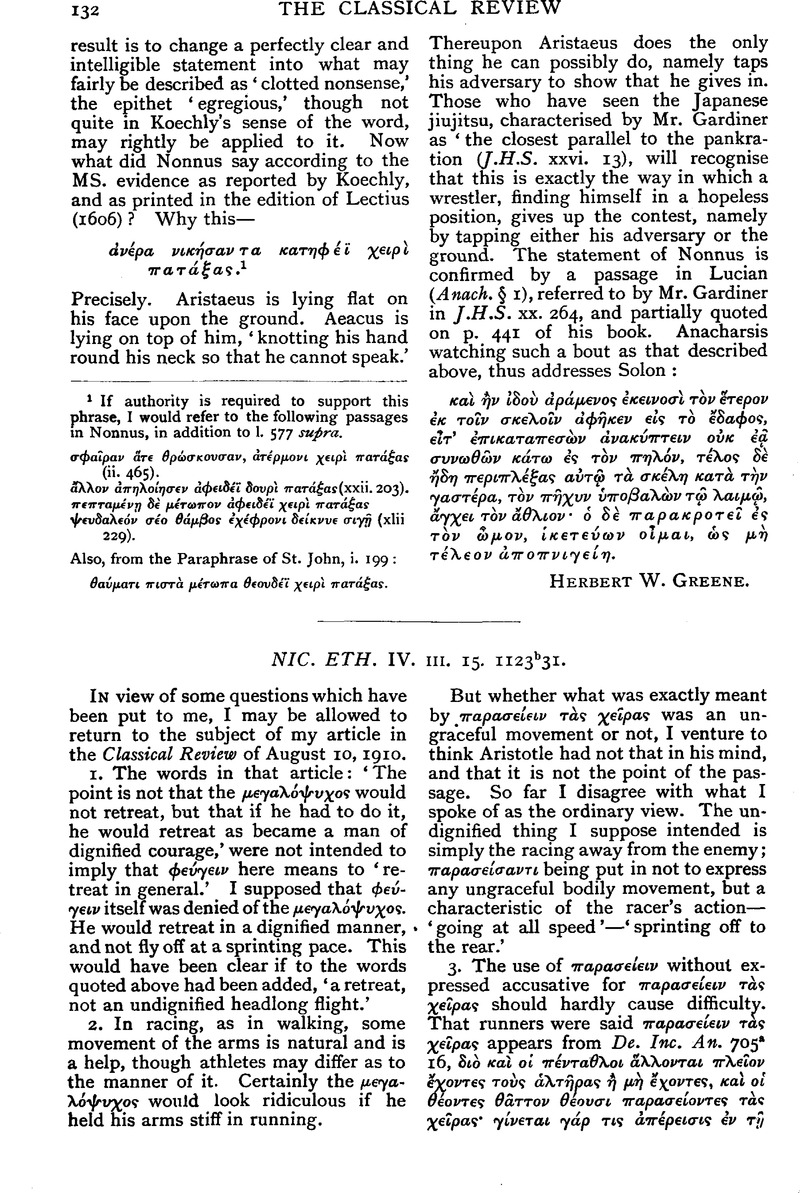No CrossRef data available.
Published online by Cambridge University Press: 27 October 2009

1 Since this article was in proof, a friend, who has looked into the matter for me, has found that the Ethics passage has already been associated with the Homeric ![]() by Monro, Homeric Grammar, § 77, who says that the participle of the aorist is sometimes used to express exact coincidence with the action of the principal verb, and that this is especially found with verbs expressing the manner with which a thing is said or done. He gives Arist. Eth. IV. iii. 15 as an instance of the special usage. This view is akin to Madvig, Gk. Synt., § 183, An. 2, where the participle is translated by ‘indem’ and ‘dadurch dass.’ Madvig, however, speaks only of the case of a momentary contemporaneous act, whereas the case before us is the momentary beginning of a continuous action.
by Monro, Homeric Grammar, § 77, who says that the participle of the aorist is sometimes used to express exact coincidence with the action of the principal verb, and that this is especially found with verbs expressing the manner with which a thing is said or done. He gives Arist. Eth. IV. iii. 15 as an instance of the special usage. This view is akin to Madvig, Gk. Synt., § 183, An. 2, where the participle is translated by ‘indem’ and ‘dadurch dass.’ Madvig, however, speaks only of the case of a momentary contemporaneous act, whereas the case before us is the momentary beginning of a continuous action.